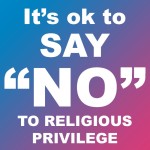
One thing about modern man, he (and she) want to be modern and pursuing the latest and greatest fashion. This is, of course, nothing very modern at all. Luke recorded the same phenomenon almost 2000 years ago, in his discussion of the Apostle Paul at Mars Hill, where he editorialized:
(Now all the Athenians and the strangers visiting there used to spend their time in nothing other than telling or hearing something new.)
Some of my friends have to have the latest gadget, and the latest and greatest podcast, or book, or you name it. We want to be on the cutting edge, “with it,” and certainly not left behind. So it is with ideas and ideologies. There is a sense in which this is very good, in that we’re dissatisfied with the world as we find it. We know its not quite right, and we struggle to find meaning and purpose in the midst of it. As a Christian, I understand the brokenness of this world, and I understand the solution is not to be found on this side of the second coming. Yet non-Christians likewise seek to find rationale and ways to make this world a better place. So it is with the modern sexual revolution, with the argument that what precludes individual happiness are cultural restrictions on sexual activity, or more broadly, any restrictions on what we see as our individual identity. Modern society is pushing at breakneck speed to jettison not only millennia of Judeo-Christian teaching on marriage, but what virtually every society has always held to be the best social structure.
So this week we see a nationwide vote in Australia endorsing same sex marriage, with a healthy majority paving the way for a vote to approve gay marriage in Australia’s parliament. This is the easy part, as the unintended (?) consequences will only ripple through time. Supporters of gay marriage in Australia were clear in what they think of religious freedom concerns:

So what’s this got to do with socialism? Gay marriage is analogous to socialism in this respect: supporters of the new idea in the late 1800s and early 1900s were eager to jettison the cultural wisdom of the ages for the more fair and just society that socialism promised. As Ludwig Von Mises said in the first lines of his classic work, Socialism:
Socialism is the watchword and the catchword of our day. The socialist idea dominates the modern spirit. The masses approve of it, it expresses the thoughts and feelings of all; it has set its seal upon our time. When history comes to tell our story it will write above the chapter ‘The Epoch of Socialism’.
Could we not replace “socialism” in Mises’ work with “marriage equality” and it not fit the milieu of our day? Do we not seek to jettison the wisdom of the history of our world in a vain pursuit for temporal happiness? Is there any reason to suspect that this blind push against the natural order will end any better than the economic reality of socialism? Oh the collective hubris we have, thinking that we are so much wiser and more moral than our predecessors.
Yet if we can recognize our limitations, then we may be able find a path that will lead to the results we truly need. The answer to a broken world’s hope for meaning and purpose is not to try to eliminate God from our thinking and our social structures such as marriage and the family, but rather to include God into even more areas of our lives and thinking. Our problem is not that society does not embrace the identity that we’d like to choose, but rather our problem is our unwillingness to embrace the truth of the identity that God has created for us. Every aspect of our being has been corrupted by the fall; sin is present in every part of our being. So it should come as no surprise that our sexuality is bent and broken, from same-sex attraction, to addiction to pornography, to sexual exploitation and violence. The answer to this is not less God, but more. We must get to root cause–the depth of depravity that results from our rebellion to God. The good news, and it’s very good news, is that while the world and our enemy lies about our nature and identity, God reveals a different truth: that each individual is created in His image, and despite our brokenness, each one of us can have our identity as His adopted children, the child of the King. We may not be whole in this life, but there is a promise that there will be one day when there will be no more tears.
 Bert Wheeler
Bert Wheeler
 Jeff Haymond
Jeff Haymond
 Marc Clauson
Marc Clauson
 Mark Caleb Smith
Mark Caleb Smith
 Tom Mach
Tom Mach